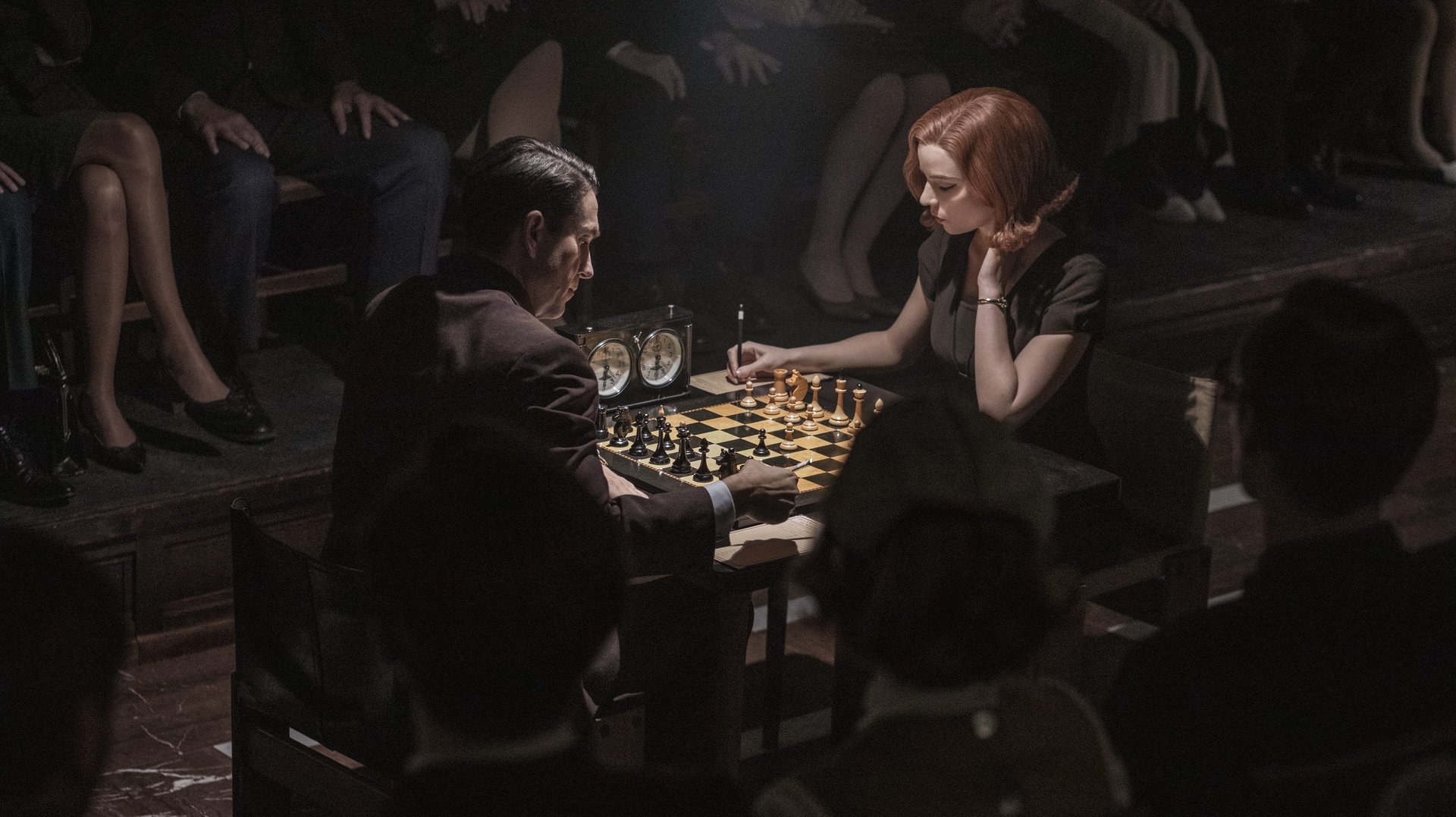Booming chess sales prove Netflix is a potential advertising powerhouse
Chess is cool again, thanks to the hit Netflix show The Queen’s Gambit. While chess retailers and app makers reap the rewards, other brands are surely taking note of the streaming service’s ability to singlehandedly drive sales.


Chess is cool again, thanks to the hit Netflix show The Queen’s Gambit. While chess retailers and app makers reap the rewards, other brands are surely taking note of the streaming service’s ability to singlehandedly drive sales.
Sales for the ancient board game are up 125% since the miniseries debuted Oct. 23, according to the market research company NPD. One toy company, Goliath Games, told NPR that sales of its chess sets have increased more than 1,000% compared to the same period last year. Downloads for Chess.com’s iPhone app have jumped from obscurity to the top of the charts.
Netflix does not have traditional ads—and remains adamant it will not introduce them—but marketers see enormous opportunity in the company should it determine it wants another revenue stream besides subscriptions. Netflix does already work with advertisers through brand partnerships and consumer products (like its deal with Coca-Cola to revive “New Coke” and tie it to the series Stranger Things), though money doesn’t change hands in those rare instances.
Marketers, however, believe innovative advertising formats like digital product placement and pause ads could eventually present the streaming service with an opportunity it can’t ignore, without technically reneging on its promise to users to provide an ad-free entertainment experience. Consider, for instance, if The Queen’s Gambit was “sponsored by” a chess retailer, or if the characters in the series exclusively used pieces from a specific brand.
Based on the 1983 novel of the same name by Walter Tevis, The Queen’s Gambit tells the story of Beth Harmon, an orphan chess prodigy from Kentucky, as she rises through the male-dominated global chess ranks. According to Nielsen, it was the most watched streaming show in the world the week after it debuted—a list that includes both new series and older ones, like The Office. Critics are calling it one of the best shows of the year.
To be sure, The Queen’s Gambit was the result of some fortuitous alchemy, which enabled it to generate a surge in chess sales. For one, the series is genuinely good. (A lesser show would have had far less sway over consumers’ wallets.) It also demystifies a game everyone knows, but few actually can play, and even fewer can play well—creating just the kind of consumer curiosity gap that could lead to more units being sold.
And it benefited from great timing, as consumers are cooped up at home amid the pandemic, looking for new forms of at-home leisure.
While the Netflix’s impact is perhaps most noticeable in the world of chess, there’s some evidence it was also partly responsible for a rise in Barbie sales at two separate points this year, each jump tied to a release of new Barbie content on the service.
There’s no guarantee this success would translate to other types of products in non-pandemic times. Netflix, with its nearly 200 million global subscribers, could also command hefty fees should it allow brands a presence in or alongside its original series. But simply knowing this opportunity is out there means advertisers are likely to keep trying to get Netflix to finally embrace them.
Imagine a Stranger Things season brought to you by Reebok, or a Cadillac overlay that appears only when you pause an episode. Next time one of Netflix’s shows leads to a surge in sales for a product, the streaming giant might feel it’s entitled to a cut of the profits.